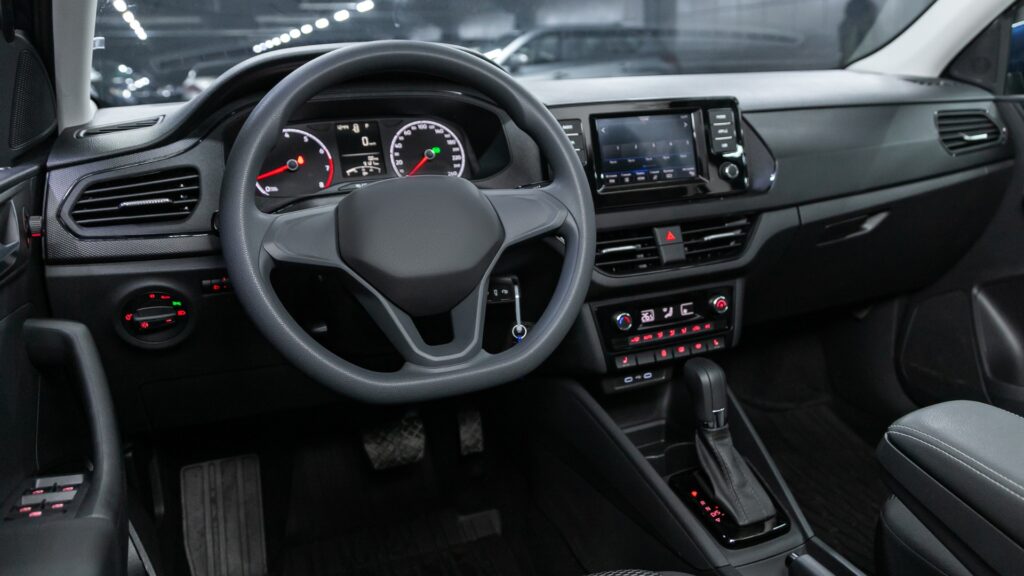Stepping into the realm of vehicle design, I’ve witnessed a groundbreaking shift propelled by the power of quantum computing. The fusion of advanced algorithms and quantum mechanics is reshaping the very foundation of how we conceptualize, engineer, and optimize vehicles. Quantum computing’s unparalleled processing capabilities are unlocking a new era of innovation, where complex simulations and optimizations that once took ages are now achieved in a fraction of the time. As I delve deeper into this technological marvel, I uncover the transformative impact it’s having on aerodynamics, materials science, and overall vehicle performance. Join me on this journey as we explore how quantum computing is propelling vehicle design into a future limited only by imagination.
Understanding Quantum Computing in Vehicle Design
As I delve into the realm of quantum computing in vehicle design, I unravel its profound impact on revolutionizing the ways in which we conceptualize, engineer, and optimize vehicles. Quantum computing’s unparalleled processing power enables swift and intricate simulations and optimizations, propelling advancements in aerodynamics, materials science, and overall vehicle performance. Let’s explore how this fusion of cutting-edge technology is reshaping the future of vehicle design.
The Basics of Quantum Computing
In quantum computing, bits are replaced by quantum bits or qubits, which can exist in multiple states simultaneously due to quantum superposition. This allows quantum computers to process vast amounts of data concurrently, leading to exponential speed and efficiency in solving complex problems. Traditional computers process data sequentially using bits, which limits their capabilities compared to quantum computers.
Application in Automotive Engineering
In automotive engineering, quantum computing revolutionizes the design process by optimizing vehicle performance, enhancing safety features, and reducing environmental impact. Quantum algorithms can analyze massive datasets to improve aerodynamics, simulate crash tests, and enhance energy efficiency. By leveraging quantum computing, engineers can create innovative vehicle designs that push the boundaries of traditional limitations, ultimately leading to safer, more efficient, and environmentally friendly vehicles.
Quantum Computing’s Impact on Automotive Design
In exploring the impact of quantum computing on vehicle design, I delve into how this technology revolutionizes the conceptualization, engineering, and optimization of vehicles by leveraging advanced algorithms and principles of quantum mechanics. The exceptional processing power of quantum computing facilitates faster and more intricate simulations, leading to significant advancements in various aspects of automotive design.
- Enhancing Aerodynamics
Quantum computing plays a pivotal role in enhancing aerodynamics in vehicle design. By harnessing the computational power of qubits, engineers can conduct complex aerodynamic simulations with unprecedented speed and accuracy. This enables the optimization of vehicle shapes and airflow patterns to reduce drag, improve fuel efficiency, and enhance overall performance. Quantum computing allows for the analysis of numerous aerodynamic variables simultaneously, leading to more streamlined and efficient vehicle designs. - Innovating Material Science
The integration of quantum computing in automotive design has revolutionized material science practices. Quantum algorithms facilitate the exploration of novel materials with specific properties that enhance vehicle performance, durability, and sustainability. By leveraging quantum computing, engineers can simulate the behavior of materials under various conditions, leading to the development of lightweight yet robust materials for constructing vehicles. This innovative approach to material science enables the creation of next-generation vehicles that are not only technologically advanced but also environmentally sustainable.
Case Studies: Quantum Computing in Auto Industry Giants
Exploring quantum computing’s application in the auto industry reveals fascinating accomplishments by industry leaders leveraging this cutting-edge technology.
Example from Leading Electric Car Manufacturers
I’ll delve into the remarkable case of Tesla Motors, a frontrunner in the electric car market, incorporating quantum computing to enhance their vehicle designs. By utilizing quantum algorithms, Tesla can optimize battery performance, range, and energy efficiency. This approach enables them to develop electric vehicles with extended driving ranges and faster charging times, setting new standards for eco-friendly transportation.
Insights from Formula One Teams
Formula One teams like Mercedes-AMG Petronas F1 Team have successfully integrated quantum computing into their vehicle design processes. Employing quantum algorithms for aerodynamic simulations, these teams refine their cars’ designs to maximize speed and performance on the racetrack. The precision and speed of quantum computations allow for intricate adjustments that significantly impact the cars’ aerodynamics, granting Formula One teams a competitive edge in a sport where every millisecond matters.
Future Prospects of Quantum Computing in Vehicle Design
In considering the future prospects of quantum computing in vehicle design, there are several predictions and emerging trends to anticipate, along with key challenges and considerations to address.
Predictions and Emerging Trends
In the realm of vehicle design, quantum computing is poised to revolutionize the industry further. One of the key predictions is the accelerated development of autonomous vehicles through enhanced AI algorithms powered by quantum computing. The ability to process vast amounts of data quickly and efficiently will enable autonomous vehicles to make split-second decisions, enhancing safety and performance on the road.
Another emerging trend is the customization of vehicles to individual preferences at a molecular level. Quantum computing’s capabilities to simulate and optimize at the atomic scale will allow for personalized vehicle designs that cater to specific needs and preferences, leading to a new era of bespoke automotive solutions.
Challenges and Considerations
Despite the promising outlook, there are challenges that need to be addressed for the full integration of quantum computing in vehicle design. One significant consideration is the cost associated with developing and maintaining quantum computing infrastructure. As quantum technologies evolve, investment in hardware and software will be essential to leverage the full potential of quantum computing in optimizing vehicle design processes.
Moreover, the skill gap in quantum computing expertise presents a challenge for the auto industry. Companies will need to invest in training and development to ensure their teams are equipped to harness the power of quantum algorithms effectively in vehicle design. Bridging this skills gap will be crucial in maximizing the benefits of quantum computing in shaping the future of vehicle design.




